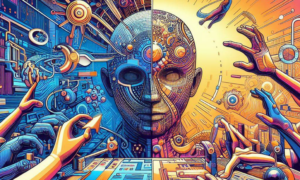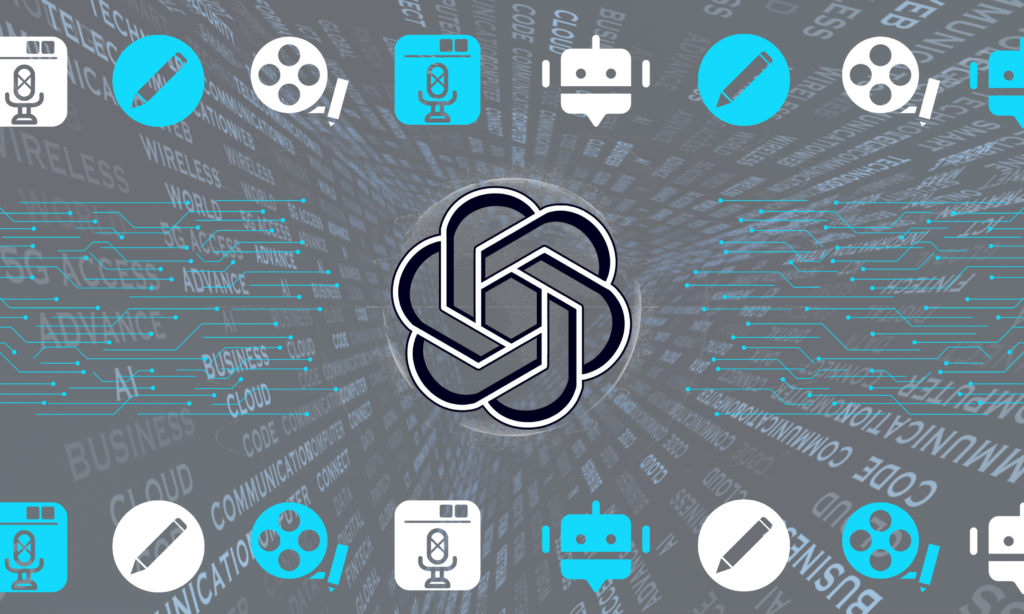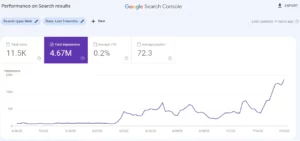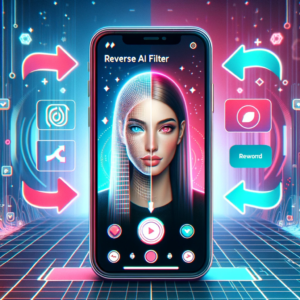ChatGPT, an AI model developed by OpenAI, has garnered significant attention in the fields of SEO and digital marketing. It utilizes natural language processing (NLP) to interpret and generate human-like text, making it a useful tool for various tasks. This includes content generation, customer service automation, and aiding in coding. However, it’s essential to understand its limitations, particularly in terms of creating factually accurate content and real-time data processing.
Suggested Reading: See how AI slashed the cost of this profitable marketing plan by 80%
Drawbacks of Relying Solely on ChatGPT
One major concern with ChatGPT is its reliance on existing data sets, limiting its ability to generate content on recent topics or provide real-time analytics. This underscores the importance of human oversight in verifying the accuracy of AI-generated content. Additionally, ethical considerations arise regarding the disclosure of AI-generated content to clients, emphasizing the need for transparency in digital marketing practices.
The Emergence of Alternatives and Their Impact
The market has seen the introduction of ChatGPT alternatives like Google Bard, Microsoft Bing, and others, each bringing unique features to the table. These include sentiment analysis, speech recognition, and multi-language support. These alternatives not only diversify the available tools for digital marketing but also indicate a growing demand for AI-driven solutions in content creation and customer interaction.
From conversational AI platforms like Jasper.ai to research-focused tools like Elicit, these alternatives offer diverse solutions catering to different needs within digital marketing and content creation. This variety enables professionals to choose the tool best suited for their specific project requirements.
Here is a look at the 11 top ChatGPT alternatives and what they offer;
1. Google Bard: Google’s Strategic Move in AI Conversations
Google Bard, leveraging Google’s LAMDA technology, marks a significant stride in the realm of AI-driven conversational services. With a database enriched by trillions of words, Bard excels in predicting responses, making it a formidable player in AI communication. However, its occasional inaccuracies, as evidenced by the impact on Google’s stock, highlight the limitations of AI tools, emphasizing the need for human insight in interpreting AI data. This aspect is particularly crucial for digital marketers who rely on a blend of AI-generated insights and human judgment for strategic decision-making.
2. Microsoft Bing Chat: Elevating Bing’s Search Experience
Microsoft Bing Chat represents a leap in AI chat services, incorporating an enhanced version of ChatGPT. Its key features are improved accuracy and faster response times, which are vital in customer service and search-based applications. For digital marketers, Bing Chat can enhance customer interactions and provide quicker, more accurate responses to search-related inquiries, forming an integral part of a dynamic digital marketing strategy.
3. Jasper.ai: A Marketing and Content Creation Ally
Jasper.ai stands out as a multifunctional tool, combining GPT-3.5 and advanced natural language understanding models. It excels in generating creative content, including ad copy and images, aligning seamlessly with marketing objectives. Jasper.ai’s strength lies in its ability to automate and enrich content strategies, making it a valuable asset for content creators and marketers seeking efficiency and creativity in their digital campaigns.
4. Claude: Anthropic’s Contribution to AI Conversations
Claude, developed by Anthropic, is a next-generation AI assistant emphasizing ethical AI practices. Its design principles of being helpful, honest, and harmless make it appealing for businesses that value customer trust and transparency. Claude is adept at various tasks, including summarization and creative writing, making it a versatile tool for content creators and digital marketers who prioritize ethical AI usage.
5. ChatSonic: Real-Time Factual Content Creation
ChatSonic proposes a unique feature – integrating real-time search data into content creation. If this capability holds true, it can revolutionize content creation for marketers, providing them with up-to-date information for campaigns. However, its ability to transcend the limitations of the GPT-3 training dataset remains questionable, urging marketers to approach it with a blend of enthusiasm and caution.
6. NeevaAI: A Search Engine with an AI Twist
NeevaAI combines the features of a search engine with ChatGPT-like functionalities, offering a fresh perspective in AI-assisted search. This integration is especially beneficial for research-intensive tasks, providing an ad-free and privacy-centric browsing experience. Digital marketers might find NeevaAI’s combination of current data and conversational AI enhances both the speed and quality of their research efforts.
7. YouChat: Enhanced AI-Driven Search Interactions
YouChat redefines the search experience by enabling more dynamic, conversational interactions. Its proficiency in handling complex queries and delivering content in multiple languages is a significant advantage for global marketing campaigns and multilingual content creation. This tool can be pivotal in developing diverse and globally relevant marketing strategies.
8. Perplexity AI: Deepening Inquiry with Conversational Search
Perplexity AI stands out with its conversational search engine that cites sources, offering a level of transparency and reliability. This feature is particularly valuable for researchers and academics, ensuring the credibility of the information sourced. For digital marketers, this can mean access to credible and well-sourced data, vital for informed strategy development.
9. Character.AI: Personality-Driven AI Interactions
Character.AI specializes in creating AI characters for personalized chat experiences. Primarily oriented towards entertainment, the underlying technology has potential in customer engagement where personalized interaction is crucial. This aspect could be creatively incorporated into digital marketing strategies for enhanced customer engagement and experience.
10. Elicit: The AI Research Assistant
Elicit specializes in synthesizing and summarizing academic and technical content, a valuable tool for digesting vast information quickly. Its capabilities are particularly useful for marketers and content creators who need to stay abreast of industry trends and developments, enabling them to make informed decisions and create relevant content.
11. Learnt.ai: Tailored for Education Professionals
Learnt.ai is specifically designed for the educational sector, addressing the need for industry-specific AI tools. Its ability to generate educational content could be adapted for other sectors where tailored content creation is crucial. This adaptability makes Learnt.ai an intriguing option for sectors seeking customized content solutions.
12. ChatGPT in SEO: A Helping Hand, Not a Replacement
While ChatGPT can assist in keyword research and content ideation, it cannot replace the strategic and analytical abilities of a seasoned SEO professional. It lacks the capability to devise comprehensive SEO strategies or diagnose specific issues related to algorithm updates. This highlights the importance of human expertise in creating nuanced and effective SEO strategies.
As a tool, ChatGPT is invaluable for automating repetitive tasks and providing a baseline for content creation. However, it should not be overly relied upon for complex or specialized content. A balanced approach, where AI-generated content is supplemented and verified by human knowledge and creativity, is crucial in maintaining quality and accuracy.

Future Perspectives: Embracing AI with Prudence
AI, with tools like ChatGPT and its alternatives, is shaping the future of SEO and digital marketing. While these tools offer efficiency and innovation, they do not signify the end of traditional SEO practices. The synergy of AI technology and human expertise remains critical in navigating the challenges and opportunities in this sector.
Elon Musk rolled out an AI tool too called xAI. Whether that is just another me too AI product, a gimmick to sell more Twitter/X subscriptions, or a real game change – we will soon know, and if it deserves a spot on this list we’ll surely add it too.
ChatGPT and its alternatives offer exciting possibilities in automating tasks and enhancing content creation in SEO and digital marketing. However, they should be used as supplements to, not replacements for, human expertise and creativity. As the AI field continues to evolve, staying informed and adaptable while maintaining a critical perspective on these technologies will be key to success in the dynamic landscape of digital marketing and SEO.









